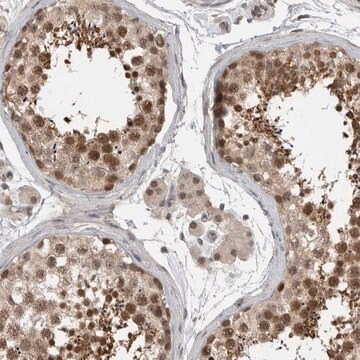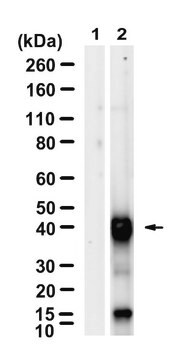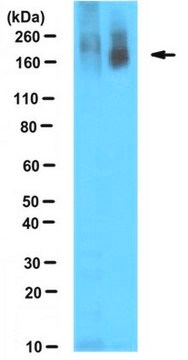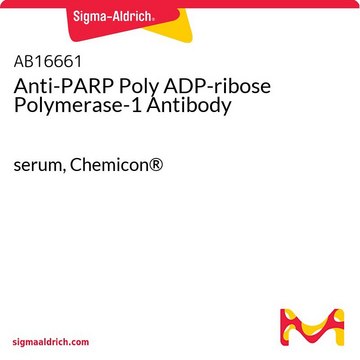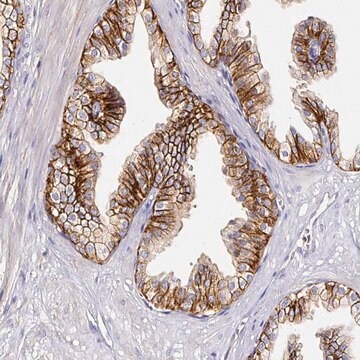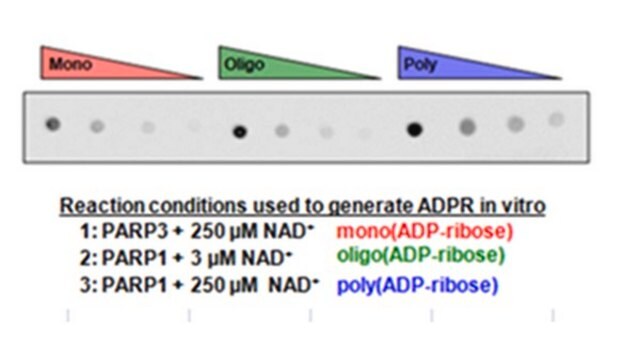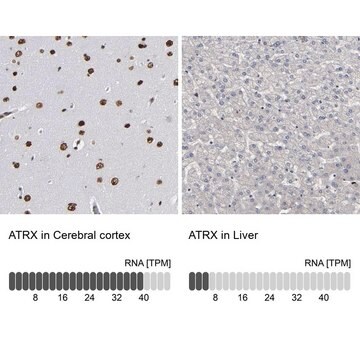ZMS1103
Anti-Poly(ADP-ribose) Antibody, clone 10H ZooMAb® Mouse Monoclonal

recombinant, expressed in HEK 293 cells
Synonym(s):
PAR, Poly (ADP-ribose) polymer
About This Item
Recommended Products
biological source
mouse
Quality Level
recombinant
expressed in HEK 293 cells
conjugate
unconjugated
antibody form
purified antibody
antibody product type
primary antibodies
clone
10H, recombinant monoclonal
description
recombinant, expressed in HEK 293 cells
product line
ZooMAb® learn more
form
lyophilized
mol wt
calculated mol wt 559.32 kDa
observed mol wt ~200 kDa
purified by
using protein G
species reactivity
human
species reactivity (predicted by homology)
all
packaging
antibody small pack of 25
greener alternative product characteristics
Waste Prevention
Designing Safer Chemicals
Design for Energy Efficiency
Learn more about the Principles of Green Chemistry.
enhanced validation
recombinant expression
Learn more about Antibody Enhanced Validation
sustainability
Greener Alternative Product
technique(s)
immunocytochemistry: suitable
immunoprecipitation (IP): suitable
western blot: suitable
isotype
IgG1κ
greener alternative category
shipped in
ambient
storage temp.
2-8°C
Related Categories
General description
Specificity
Immunogen
Application
Evaluated by Western Blotting in HeLa cell lysate.
Western Blotting Analysis: A 1:10,000 dilution of this antibody detected Poly(ADP-ribose) in HeLa cell lysate.
Tested Applications
Immunocytochemistry Analysis: A 1:1,000 dilution from a representative lot detected Poly(ADP-ribose) in HeLa treated with 0.1% Hydrogen Peroxide, but not in untreated cells.
Immunoprecipitation Analysis: 2 µg from a representative lot immunoprecipitated Poly(ADP-ribose) in HeLa treated with 0.1% Hydrogen Peroxide.
Note: Actual optimal working dilutions must be determined by end user as specimens, and experimental conditions may vary with the end user.
Target description
Physical form
Reconstitution
Storage and Stability
Legal Information
Disclaimer
Not finding the right product?
Try our Product Selector Tool.
Storage Class Code
11 - Combustible Solids
WGK
WGK 1
Flash Point(F)
Not applicable
Flash Point(C)
Not applicable
Certificates of Analysis (COA)
Search for Certificates of Analysis (COA) by entering the products Lot/Batch Number. Lot and Batch Numbers can be found on a product’s label following the words ‘Lot’ or ‘Batch’.
Already Own This Product?
Find documentation for the products that you have recently purchased in the Document Library.
Our team of scientists has experience in all areas of research including Life Science, Material Science, Chemical Synthesis, Chromatography, Analytical and many others.
Contact Technical Service